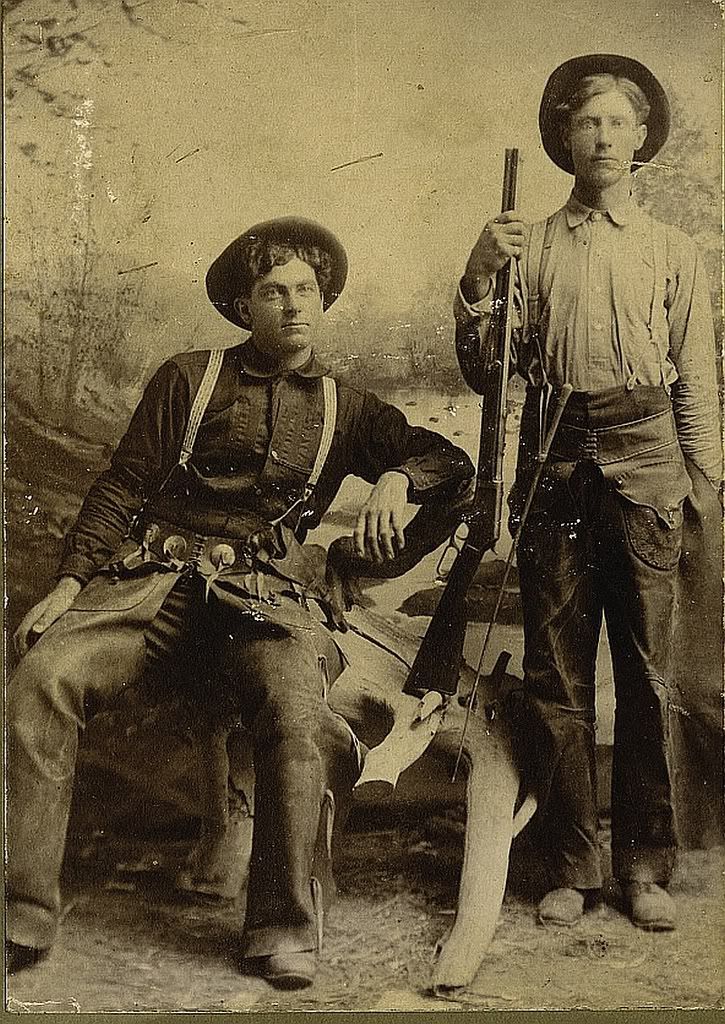Last night while in bed I decided to write up some new lines for my Western, the Lettered Men.
I’ll do that sometimes right before I go to bed. Got some good stuff done but had to rework some of em this morning. Many of these lines are spoken by Jerimiah Jereds, also known as “Wordy” (the only name his friends call him) because he will either invent words (neologisms) or will twist around old phrases and common sayings in new ways. Wordy sometimes acts as the comic-relief of the novel, which is pretty rough in parts, and sometimes acts as the de-facto Bard of the novel, being a sort of frontier’s poet and cowboy wordsmith.
Now not all of these snippets are by Wordy. But many are.
Anywho I gave my notes to my wife and daughter this morning (before the final rewrites) so that they could look over em and give me their opinion. I heard a lot of loud laughing coming from the kitchen table downstairs as I worked from my office so I reckon I did something right. They both seemed to like what they read.
Also I should not neglect that my mother came down to the house yesterday after lunch and she also reminded me of many of the old sayings and euphemisms of my grandparents and great-grandparents, which were in many ways the inspiration for Wordy.
So here are the final write ups for the Wordy Way. All from my novel The Lettered Men.
_______________________________________________________
“He’d howl like an old hound dog if ya hung him with a new rope.”
_______________________________________________________
“Ain’t really worth mentioning Word.”
“Oh yeah?” said Wordy. “Well half of not really worth mentioning still beats ever bit a nothing all day long. Specially in the middle a nowhere. So let’s just work around with what we got awhile and see where it leads us. Maybe tomorrow it still won’t be worth mentioning, but maybe in a week or two it will be. When we’re sitting our asses by the fire back home.”
________________________________________________________
“You can’t get there from here boys. But if we can just get over to there I bet we can.”
________________________________________________________
“He smells like he smothered a buzzard and kept it in his pants for a keepsake.”
_________________________________________________________
All the boys laughed when they saw him come out of the barbers. All except Wordy. He just stared at Beau for awhile and then he stood up and circled him like a corvus round a scarecrow. “Hmmm-mmm,” he kept humming to himself as he circled.
“Well now, that’s a two bit shave and a haircut iffin I ever seen one,” he finally said. “Way I see it though she still owes ya a dollar in change just to make it even.”
“Dammit!” Beau said testily slapping his hat against his thigh. Dust and hair swirled everywhere. “I told her it didn’t look right to me.”
“Be alright Beau,” Wordy said. “You’re both new at this. She ain’t much of a judge a jug-heads and you ain’t much of a judge a women.”
“Oh, and you is you Wordy sumbitch!” Beau practically yelled.
“I didn’t say that,” said Wordy. “I just seen enough scalpings in my day to know the difference between a brave and a squaw cut.”
The boys all laughed again.
_________________________________________________________
“That whore’s dumber than a plow mule, sure nuff, but she’s still twice as easy to ride. So if you’re gonna plow with her then just cut the reins and let her wander. Save ya both a lotta trouble.”
_________________________________________________________
“He drunk up the sea and spit out Achilles.” (Wordy describing a cowboy that rode into town, got drunk, and started shooting and fighting.)
_________________________________________________________
“He’s a one mare man. True enough. But he’ll go for any stallion what ain’t tied down.”
_________________________________________________________
“Book learning ruined him for anything worth knowin. I wouldn’t trust him none.”
_________________________________________________________
“The mare’s the better horse. He ain’t worth bad oats and barn rats.”
_________________________________________________________
“There ain’t another man like him in the whole lot. Thank God. Can you imagine a whole herd a dem sumbitches?”
_________________________________________________________
“She’s got a face like a sty-sow. But he’s a pot-bellied pig so who cares who slops who?”
_________________________________________________________
“Ride her at your own peril kid. But don’t dismount till ya broke her.”
_________________________________________________________
“Why, do you think she’ll foal on me?” he asked.
“Probably not,” said Wordy, “but she’s so rough you might.”
__________________________________________________________
“Boy’s so slow that he’d hav’ta ride as hard as he could for a month just ta reach the county line.”
__________________________________________________________
“Man knifed three Comanches and a Texas Ranger,” Sole said, “and lived to tell it. So you might just wanna shoot him. In the head. From behind. While he’s sleepin.”
__________________________________________________________
“Maybe he’s just shot so many men by now that he’s plum forgot how to miss. Ever think a that?”
__________________________________________________________
“Man smells like a Mississippi pole-cat, but he tracks like an Arkansas wild dog. Just make sure to keep him downwind and you’ll run em all to ground.”
__________________________________________________________
“He’s slicker than a cold-creek water snake, but not near as warm-blooded. So keep him ahead of ya, but always in sight. Safe plays are always the safest.”
__________________________________________________________
“Sir, your coffee tastes like chickpeas and boll-weevils. Without the chickpeas.”
__________________________________________________________
“Damn Word! It smells like you shit a dead possum and then lit it on fire with pine tar!”
“Yeah,” Wordy said. “I ain’t feeling too well right now.”
“Fine,” Mason said. “But did ya have to spread it around to everybody else like that? You made the local skunks puke.”
Hart Thomas snorted, spit out his chaw, and then laughed out loud.
“Hell Hart,” Mason said, “you was the skunk I was referring to!”
__________________________________________________________
“He’s cotton-brained and toe-headed. You walk a mile in his moccasins and you’ll end up Boot-hilled.”
__________________________________________________________
“Oh, he went to war alright. He just never met a battle worth sitting through or a man his equal at a foot chase.”
__________________________________________________________
“Ah hell Bill, iffin you gave him a new bull and three pregnant cows then in five years time he’d still be a sheep farmer.”
Hope you enjoyed em…





You must be logged in to post a comment.